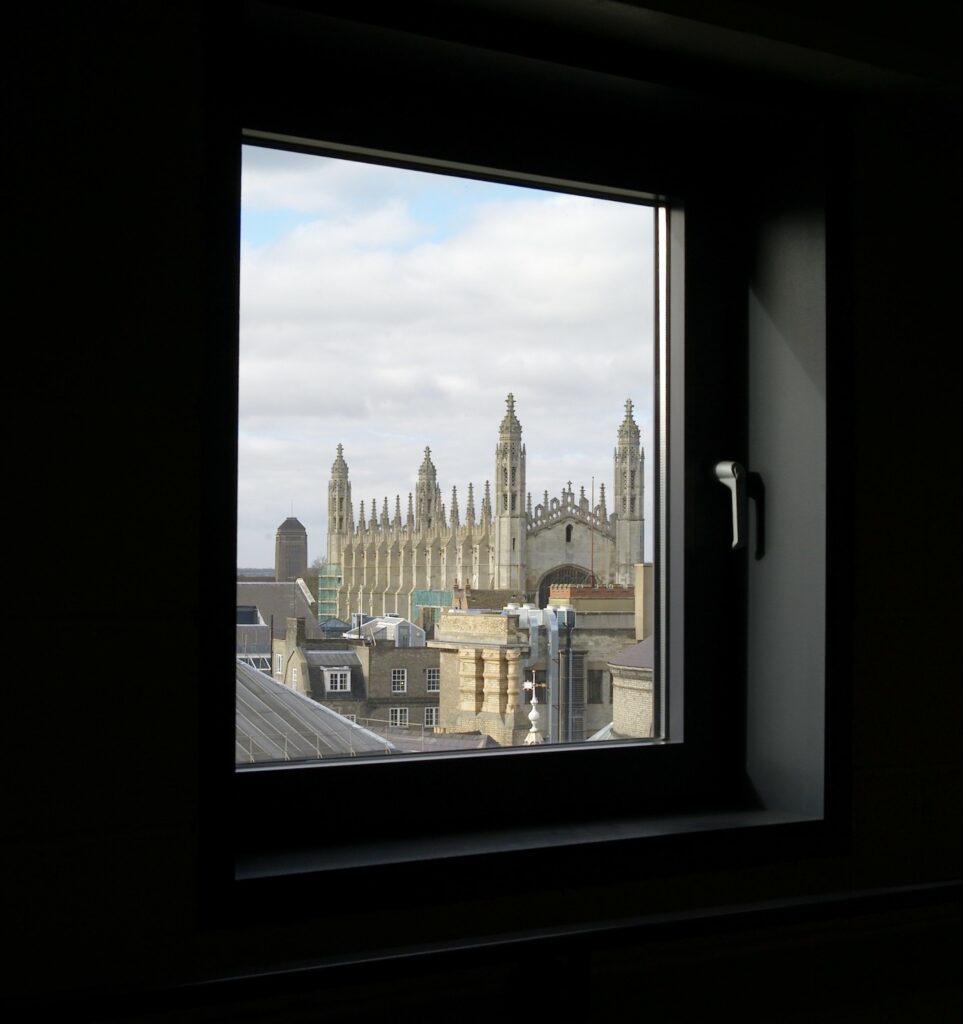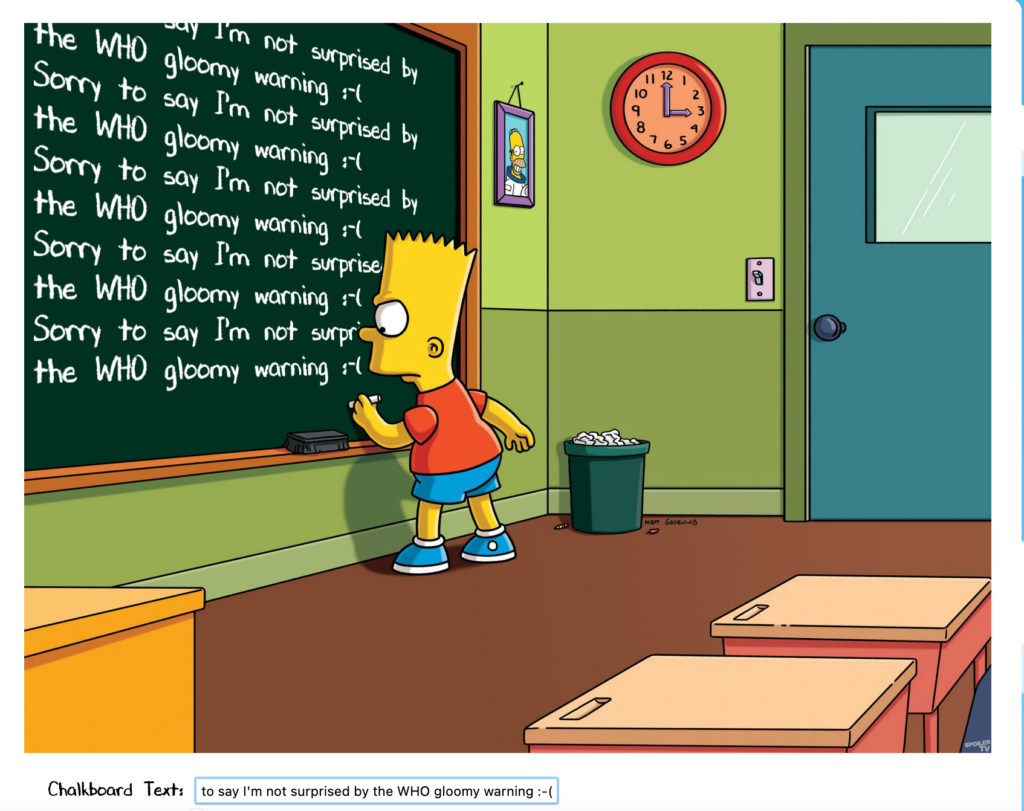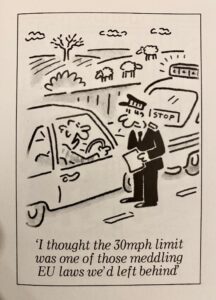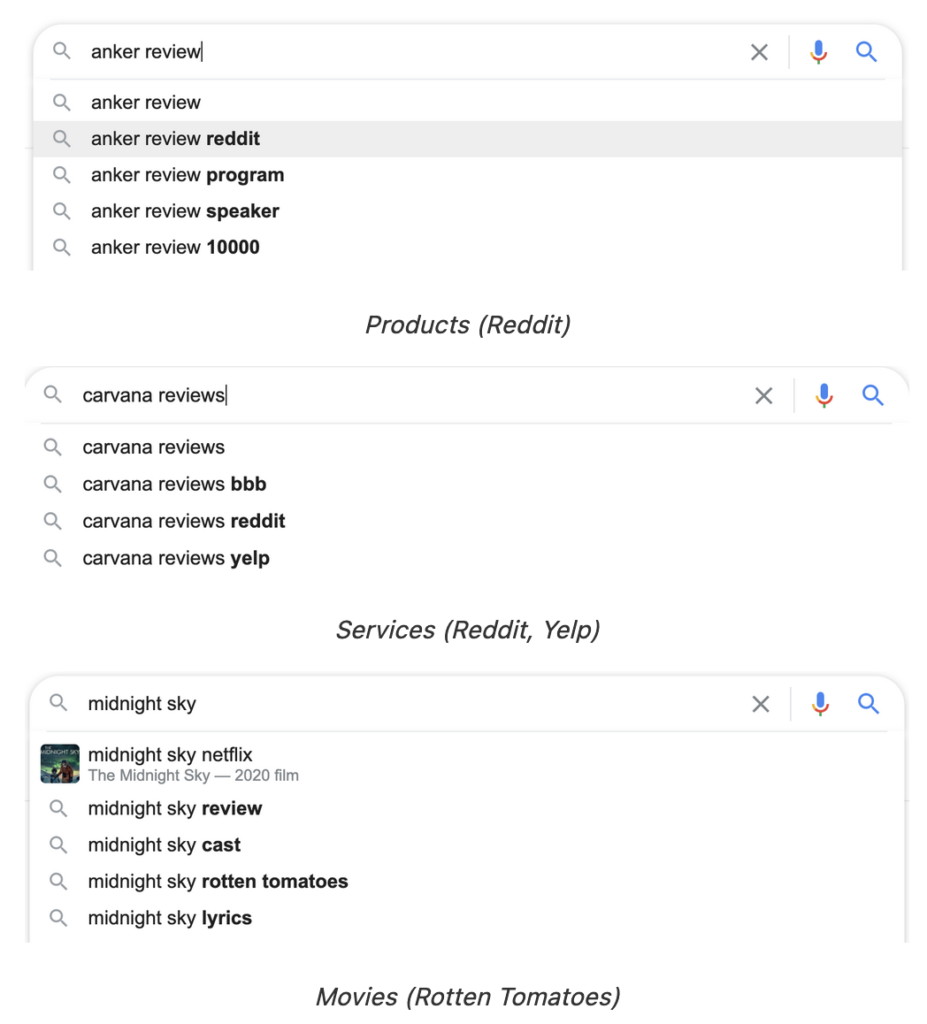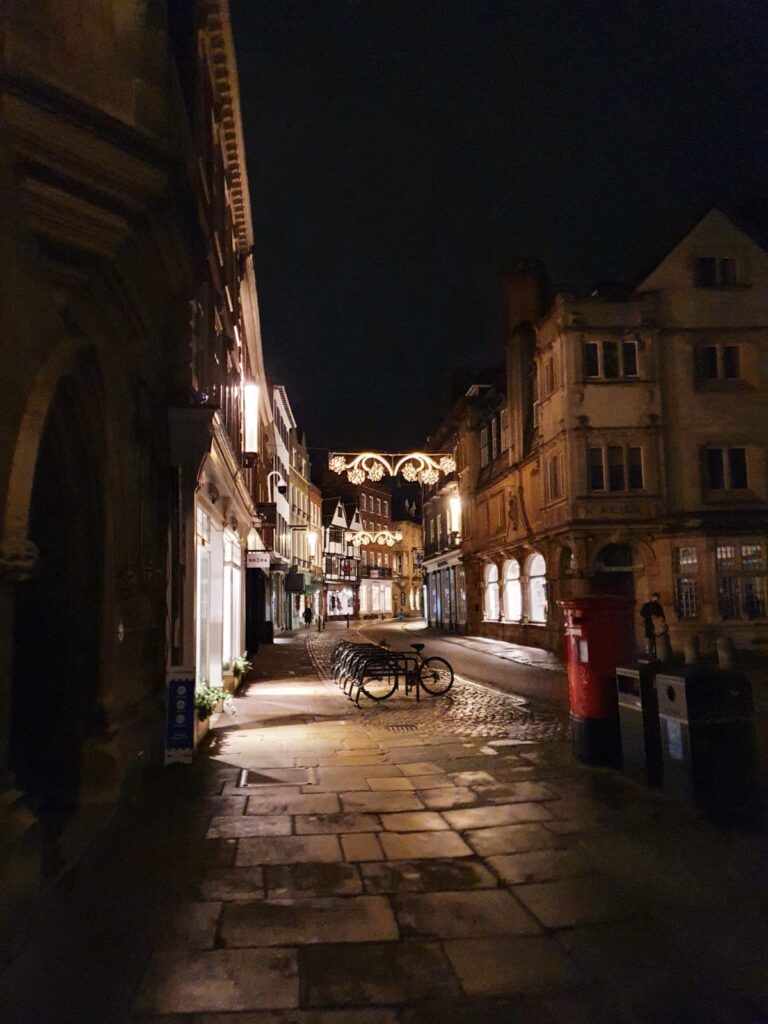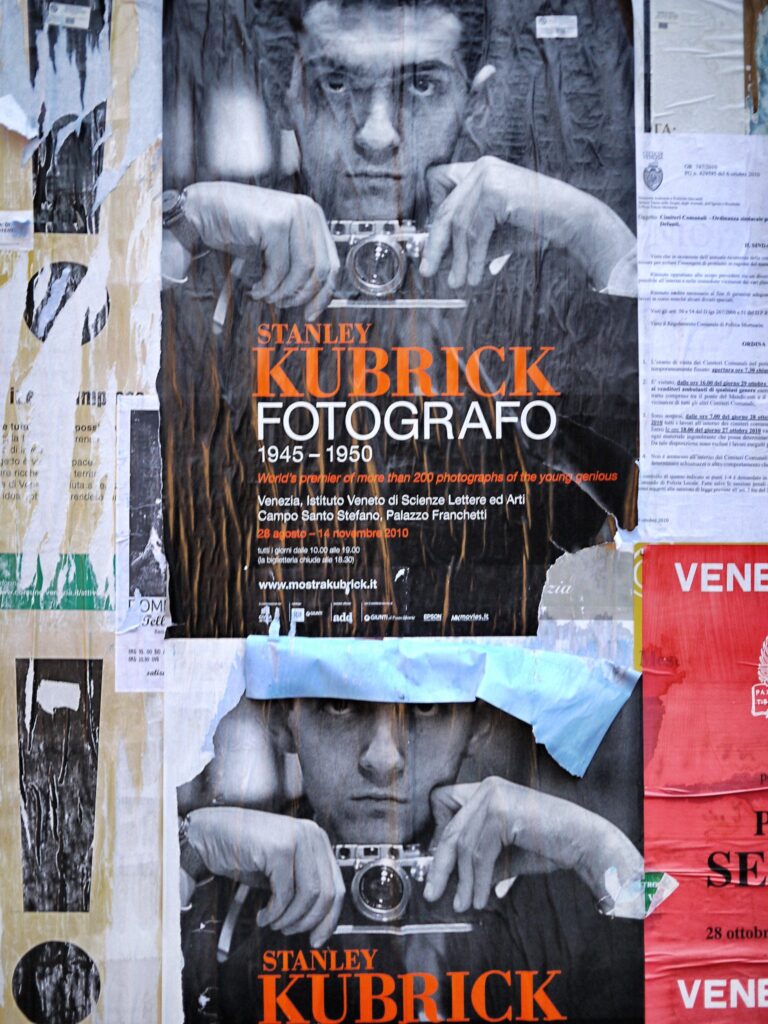King’s in the Frame
An unusual view of a famous building.
Quote of the the Day
”We are starting to hear some bizarre autarkic rhetoric when barriers are going up, and when there is a risk that new diseases such as coronavirus will trigger a panic and a desire for market segregation that go beyond what is medically rational to the point of doing real and unnecessary economic damage. Then, at that moment humanity needs some government somewhere that is willing at least to make the case powerfully for freedom of exchange, some country ready to take off its Clark Kent spectacles and leap into the phone booth and emerge with its cloak flowing as the supercharged champion of the right of the populations of the Earth to buy and sell freely among each other.”
- Boris Johnson, speech in Greenwich on February 3, 2020.
Note the date. This was arguably the most stupid speech ever made by a British Prime Minister. (See below for more detail.)
Five reasons the UK failed in Brexit talks – Jonathan Powell
Really salutary Politico piece by Jonathan Powell, who was Tony Blair’s Chief of Staff and played the lead role in negotiating, for example, the Good Friday Agreement.
I have spent the last 40 years involved in international negotiations of one sort or another, and I have never seen a British government perform worse than they did in the four years of negotiations that concluded with the Christmas Eve Brexit agreement.
Leaving aside the rights and wrongs of Brexit, purely in terms of negotiating technique, it is an object lesson in how not to do it. As the bluster and self-congratulation dies down, it is worth standing back and looking at what we can learn from the debacle.
We have ended up with an agreement which is more or less where the EU started. It is true that there have been a few sops to the U.K. position on the dynamic alignment of state aid and the role of the European Court of Justice. But on every major economic point, even including fisheries, the EU has got its way.
There are five principal reasons why.
It’s worth reading the whole piece. But in summary, here are the five mistakes Powell lists.
-
From the outset the UK massively overestimated the strength of its negotiating position.
-
May’s government fired the starting gun before it had worked out its own position, with the result that Britain spent the first two years negotiating with itself while the EU’s clock was ticking.
-
Third, the UK prioritised abstract principles of ‘sovereignty’ over pragmatic economic interests and wasted time protecting a theoretical concept it didn’t actually want to use ahead of practical benefits.
-
The government wilfully destroyed the EU’s trust in its commitment to implement what it had already agreed by threatening to unilaterally renege on the Northern Ireland Protocol. Johnson & Co imagined they could provoke a crisis and thereby give themselves the whip hand as the EU panicked. Instead the EU negotiators kept their cool and achieved the bloc’s objectives while the government wasted time on futile tactical games.
-
The UK never developed a strategic plan for the negotiations — an an incomprehensible omission for any kind of government. But the Johnson crowd seemed to think it was OK to turn up for talks and hope things would work out.
My take on this: Johnson’s administration was never capable of conducting serious, successful negotiations because of (a) the PM’s fundamental laziness, incompetence and inexperience, (b) it had a Cabinet full of second-and third-rate politicians, and (c) it was in thrall to a powerful party cabal of Europhobic MPs with delusions about British exceptionalism.
Given these factors, the resulting ‘agreement’ — which largely seems to give the EU what it wanted all along — was predictable. This is of course bad for the country, but it has the merit (from the Leave crowd’s point of view) of enabling them to blame the EU for their own failure. It’s a Trump-lite strategy in other words.
Musical alternative to the morning’s radio news
Ode to Joy Flashmobbed
I know I blogged this during the first lockdown, but if ever there was a day for repeating it, this is it.
60 years on
Charles Foster’s Plenty of Taste blog has a lovely post this week marking the 60th anniversary of the Beatle’s return to Liverpool after their sojourn in Hamburg.
The 27 December 1960 performance at Litherland Town Hall was a breakthrough – with over 1500 tickets sold – and cemented their name as Liverpool’s top live draw.
Just as sensational as the performance is this wonderful hand-drawn poster for the gig. The exuberant lettering for this and many other of their Liverpool concerts was done by a very talented signwriter, Tony Booth. The one above has been recreated from the original posters he did at the time for Brian Epstein. Booth’s story was told in a 2016 documentary for local BBC TV, which unfortunately I haven’t seen in full. It is previewed in this clip for BBC News, where you get a glimpse of Booth at work. Sadly, he died less than a year later, as this further clip tells us. His work lives on at this website, where you can buy the modern reproductions.
Imagine: you could have seen the Beatles live for three shillings! Nowadays you have to pay £1 billion to get 12 votes from the DUP.
Implications of the new variant of Covid-19
I’m temperamentally sceptical of soothing official advice about Covid. At the moment, the consensus seems to me that the existing vaccines will probably work ok, etc. Hopefully they will. But that’s not the really significant thing about the variant: it’s its much higher transmissability.
Zeynep Tufecki has a great piece in The Atlantic about this. “A more transmissible variant of COVID-19,” she writes,
is a potential catastrophe in and of itself. If anything, given the stage in the pandemic we are at, a more transmissible variant is in some ways much more dangerous than a more severe variant. That’s because higher transmissibility subjects us to a more contagious virus spreading with exponential growth, whereas the risk from increased severity would have increased in a linear manner, affecting only those infected.
Increased transmissibility can wreak havoc in a very, very short time—especially when we already have uncontrolled spread in much of the United States. The short-term implications of all this are significant, and worthy of attention, even as we await more clarity from data. In fact, we should act quickly especially as we await more clarity—lack of data and the threat of even faster exponential growth argue for more urgency of action. If and when more reassuring data come in, relaxing restrictions will be easier than undoing the damage done by not having reacted in time. [As if we in the UK didn’t know that.]
To illustrate the difference between exponential and linear risks, Tufecki cites an example put forward by Adam Kucharski from the London School of Hygiene and Tropical Medicine, who’s an experienced modeller of infectious-disease outbreaks (and author of a rather good book on the subject, which I’ve read).
Kucharski compares a 50 percent increase in virus lethality to a 50 percent increase in virus transmissibility. Take a virus reproduction rate of about 1.1 and an infection fatality risk of 0.8 percent and imagine 10,000 active infections—a plausible scenario for many European cities, as Kucharski notes. As things stand, with those numbers, we’d expect 129 deaths in a month. If the fatality rate increased by 50 percent, that would lead to 193 deaths. In contrast, a 50 percent increase in transmissibility would lead to a whopping 978 deaths in just one month—assuming, in both scenarios, a six-day infection-generation time.
There are lots of things we don’t know at the moment. Just how much more transmissable is it, for example? 50%? 70%? We don’t know yet. What’s certain is that, as Tufecki puts it, “we are in a race against time, and the virus appears to be gaining an unfortunate ability to sprint just as we get closer to the finish line”.
2021 could be tougher than we think. Hope I’m wrong about that.
This blog is also available as a daily email. If you think this might suit you better, why not subscribe? One email a day, delivered to your inbox at 7am UK time. It’s free, and there’s a one-click unsubscribe if you decide that your inbox is full enough already!

